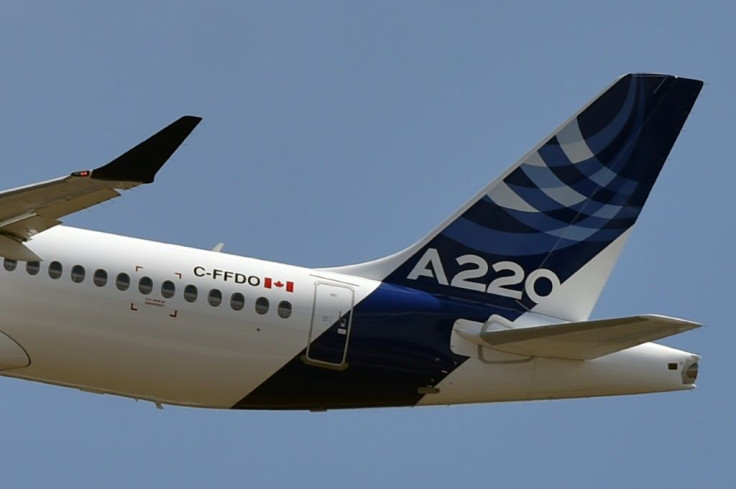Jetmaker Bombardier To Cut 2,500 Jobs in Aviation Division, Sells Off Other Assets

KEY POINTS
- Bombardier said it will record a $40 million restructuring charge on job cuts
- 1,500 of the permanent layoffs will come from its Quebec facilities and 400 in Ontario
- Bombardier posted a loss of $200 million in the first quarter.
Canadian jet and rail manufacturer Bombardier said on Friday it will cut 2,500 jobs in its aviation division due to the "extraordinary industry interruptions and challenges caused by Covid-19.”
The planned job cuts amount to about 11% of the workforce at the aviation unit.
“We are now faced with the difficult decision to adjust the size of our business, considering both disruptions in our supply chain as well as industry-wide forecasts calling for approximately 30% year-over-year drops in unit deliveries due to the pandemic,” said David Coleal, president of Bombardier Aviation.
Coleal added that “if the market improves, we will assess measures to reintegrate our colleagues. It is very unfortunate to have to resort to these reductions. However, we have reached the limits of our ability to maintain employment levels from before the COVID-19 crisis."
As a result of the layoffs, Bombardier said it will record a $40 million restructuring charge this year.
Bombardier told Radio-Canada that 1,500 of the permanent layoffs will come from its Quebec facilities and 400 in Ontario, with the remainder in foreign countries.
"Our sales books are still quite full in the long term, but we still had to adjust to the reality we're going to be facing from now until the end of the year," Mark Masluch, a Bombardier spokesperson said. "That said, in our collective agreement and in the way we work, there is always the opportunity to call back our workforce if there's a rebound in the market."
Bombardier, which suspended all operations in March, posted a loss of $200 million in the first quarter.
The International Association of Machinists and Aerospace Workers union said the layoffs will affect 717 of its members in the Montreal area. These employees benefitted from the Canada emergency wage subsidy, or CEWS, program, which was set to expire Friday. Bombardier apparently did not heed the union’s request to reapply for CEWS.
"I don't know exactly what motivated these decisions," said David Chartrand, coordinator for the union's Quebec branch. “We need help from the government to support these industries, but they've been completely inactive."
Chartrand called the job cuts “incomprehensible” citing that Bombardier could have extended its use of CEWS.
"We are extremely disappointed that Bombardier refuses to make the CEWS program accessible to all of its workers," said Chartrand.
On Friday afternoon, Canadian Prime Minister Justin Trudeau said his government will help support workers hurt by the pandemic.
"Obviously, the aerospace industry, airlines, are particularly affected with the ceasing of global travel and with the fact that the demand for purchasing business jets has decreased dramatically," said Trudeau. "We will work with industries and individual companies to try and ensure they have access to all the supports that we've put forward."
Bombardier is active on other cost-cutting fronts as well – having recently departed the commercial aircraft business by selling its CRJ regional jet program to Mitsubishi Heavy Industries Ltd. for $550 million.
The company plans to unload its rail business to French train manufacturer Alstom for up to $8.2 billion.
Upon completion of that asset sale, Bombardier will focus solely on its core business of business jets.
Bombardier, which is also one of the largest employers in Northern Ireland with 3,600 workers, said it is reviewing its operations there but has "no announcement to make at this time.”
"We are reviewing our requirements for our Northern Ireland operations for all our aircraft programs and will communicate any impact in due course," the company added.
Long before the pandemic Bombardier struggled with high debt loads and spiraling costs.
Last year Bombardier posted a loss of $1.6 billion and incurred debt of nearly $10 billion. The company had already received bailouts in the past from the Quebec government but was unlikely to receive more state aid.
"The government has already invested a lot of money in Bombardier," said Quebec Premier François Legault earlier this year.
© Copyright IBTimes 2025. All rights reserved.





















